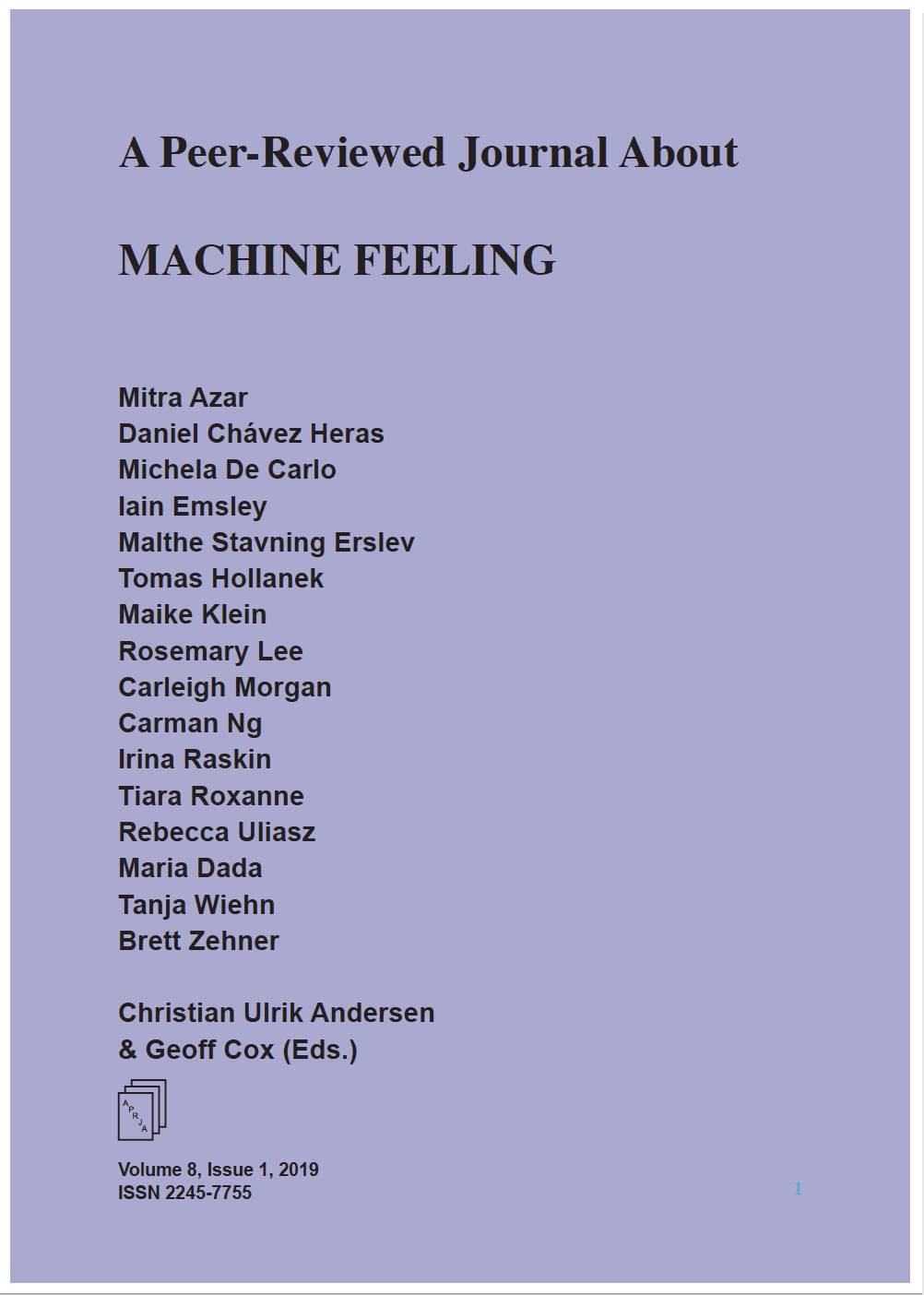Machine Learning and technoecological conditions of sensing
DOI:
https://doi.org/10.7146/aprja.v8i1.115412Abstract
In what way can machine learning be understood as a computational mode of sensing? How does the practice of making sense take place in the context of developing machine learning applications? What assumptions and conflicts are constitutive for that very process of sensing? Bringing case studies from machine learning into conversation with theoretical work primarily by Erich Hörl, Luciana Parisi, Wendy Hui Kyong Chun and Karen Barad, this article reflects on the re-configuration of sense in the course of the expansion of media-technology. It questions how computational expressions become relatable as well as the mechanisms for encapsulating the capacity of sensing for determining purposes.
Downloads
Published
Issue
Section
License
Copyright (c) 2019 A Peer-Reviewed Journal About

This work is licensed under a Creative Commons Attribution-NonCommercial-ShareAlike 4.0 International License.
Copyrights are held by the individual authors of articles.
Unless stated otherwise, all articles are published under the CC license: ‘Attribution-NonCommercial-ShareAlike’.
The journal is free of charge for readers.
APRJA does not charge authors for Article Processing Costs (APC)


